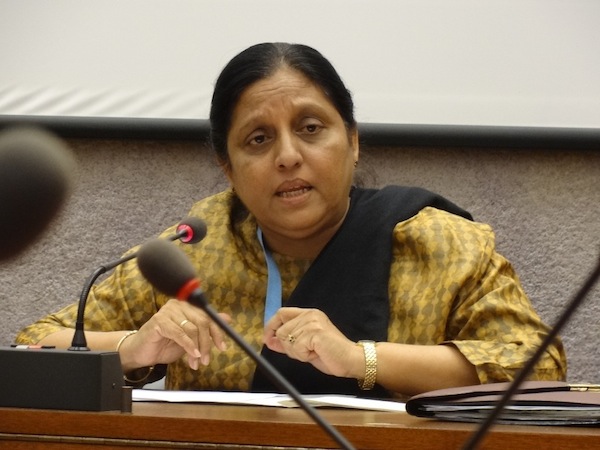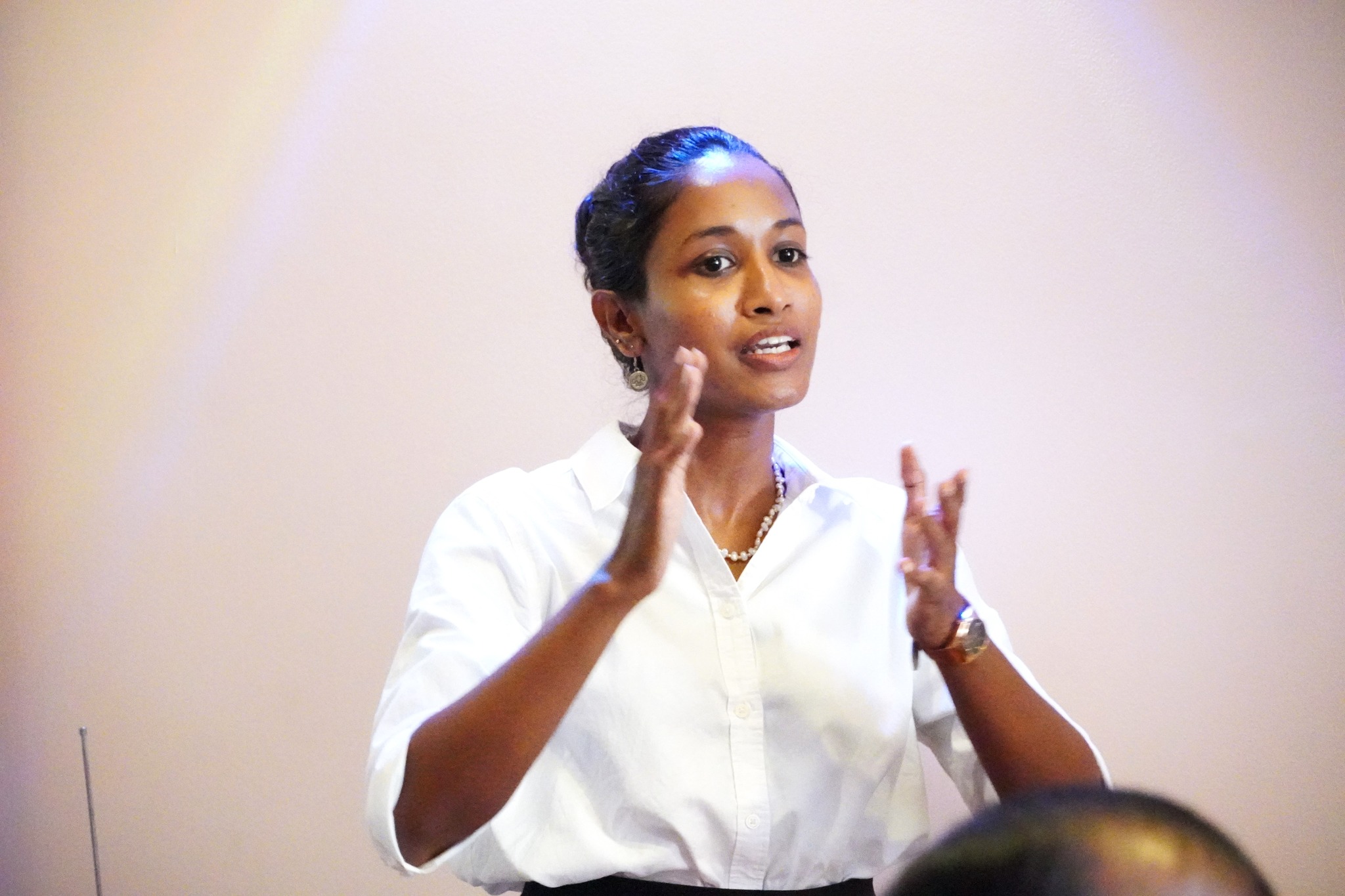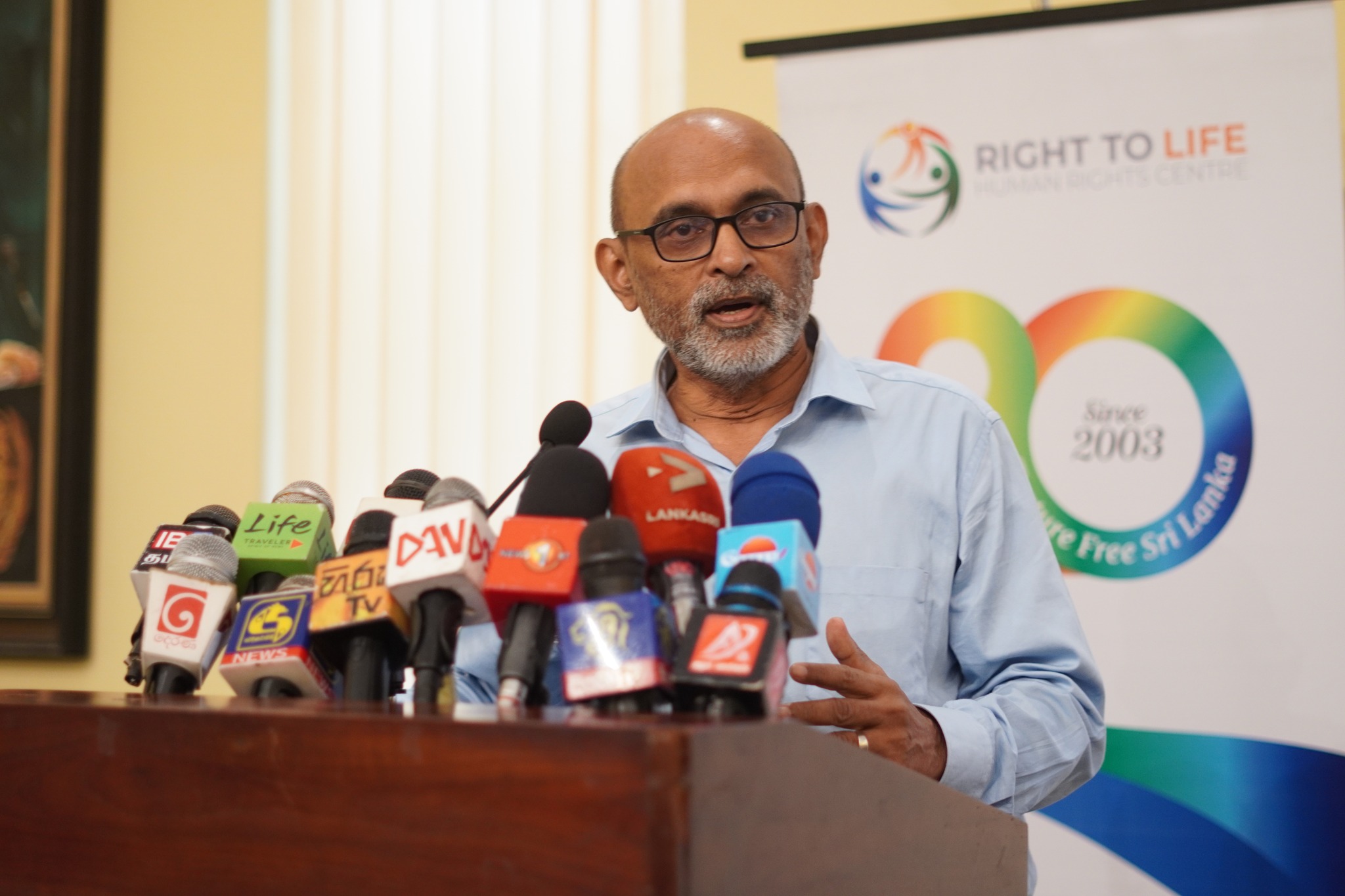Enforced disappearances are among the darkest scars left by Sri Lanka’s civil war, a conflict that consumed lives and shattered families for over two decades. For the thousands left behind, life has been an unending cycle of grief, uncertainty, and survival. Joseph Virginy, now in her 50s, is one of these voices of quiet resilience, still waiting for answers 34 years after her husband, Mariadhas, vanished.
Her story, like countless others, unfolds in the margins of Sri Lankan society, where poverty, displacement, and conflict intersect to create a cruel tapestry of loss and despair.
In 1990, Virginy married Mariadhas in a small ceremony in Pasaara, Badulla, an estate community in Sri Lanka’s central highlands. The joy of marriage was fleeting; financial struggles weighed heavily on the couple. Just seven months after their wedding, and while Virginy was pregnant with their first child, Mariadhas made the difficult decision to leave for Kalmunai, a town in the war-torn Eastern Province, to work at Najima Rice Mill.
Accompanied by several neighbors from their division, Mariadhas sought a better future for his family, despite the dangers posed by the escalating civil war.
For a brief period, letters from Mariadhas, carried by lorry drivers traveling between Kalmunai and Badulla, brought Virginy comfort and connection. His words reflected both his hope and his fear. In his last letter, sent three months after his departure, he wrote:
“The path to return is hard now. The war is heavy here. Pray for me.”
Those words would haunt Virginy for decades. Soon after, the letters stopped coming. Weeks turned into months, and her desperate inquiries to lorry drivers brought no news. Then came the message that shattered her world.
“One of the drivers told me that my husband was no more. He said Mariadhas had been killed — burnt to death with a tire. He told me not to wait and to perform the last rituals,” Virginy recalls, her eyes filling with tears. The news was devastating, but it was not official. Clinging to hope, Virginy reached out to the police, the Red Cross, and anyone else who might help. But the answers never came. Instead, she was met with indifference and silence, the familiar response to countless other families of the disappeared.
Left alone with a newborn child, Virginy’s life became a relentless fight for survival. Her father, though supportive, had no stable income. For five years, he helped care for her and her child, but his death plunged her into deeper hardship. Virginy found work at a convent, earning just enough to scrape by, but the weight of her husband’s absence loomed large.
“For 34 years, I have struggled,” she says. “Every day, I hope for answers. But life has been very hard.”
Today, Virginy remains in economic precarity. Despite government initiatives like the Office on Missing Persons (OMP), she has heard nothing of such institutions. Her lack of awareness underscores the systemic failure to reach marginalized communities, particularly estate workers like Virginy, who remain disconnected from national processes of reconciliation and justice.
Virginy’s story is deeply intertwined with the broader history of the Malayaha Tamil community, descendants of Indian laborers brought to Sri Lanka during British colonial rule. Marginalized for generations, they have faced economic deprivation, social exclusion, and political neglect. During the civil war, many Malayaha Tamils sought work in conflict zones out of sheer necessity, unaware of the risks. For families like Virginy’s, the disappearance of a loved one is compounded by the lack of support systems and recognition of their plight.
Despite the decades that have passed, Virginy has never given up hope. “I am still waiting for him,” she says, her voice trembling with emotion. The absence of closure has left her in a state of perpetual grief, a pain shared by thousands of families across Sri Lanka. The legacy of enforced disappearances in Sri Lanka is a haunting reminder of the human cost of war. For families like Virginy’s, justice and reconciliation are not abstract concepts — they are deeply personal and urgent needs.
Efforts to address enforced disappearances have been slow and insufficient. The Office on Missing Persons (OMP), established in 2017, has made limited progress in uncovering the truth or providing relief to families. For many, including Virginy, these initiatives remain inaccessible and ineffective. As Sri Lanka navigates its post-war reality, the stories of the disappeared must be given priority. Justice for families like Virginy’s is not only a moral imperative but a crucial step in building a society that values accountability, dignity, and peace. Virginy’s wait continues, a witness to her resilience and love. Her story is a stark reminder of the long shadow cast by enforced disappearances and the urgent need for meaningful action.
“I just want to know what happened to him,” she says. “Even if it is the worst, I need to know.”



